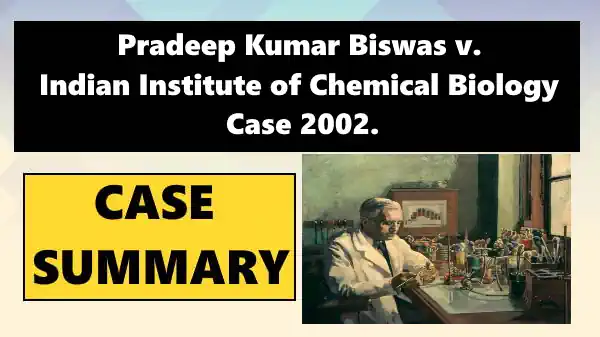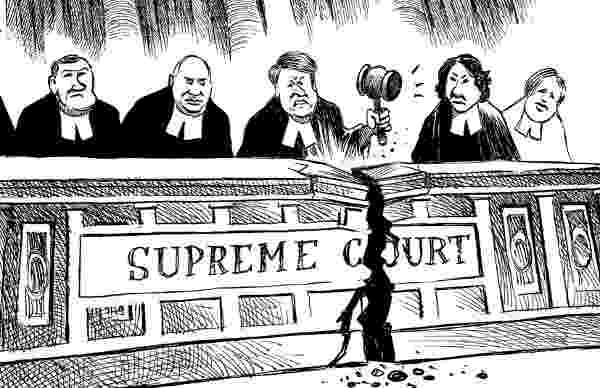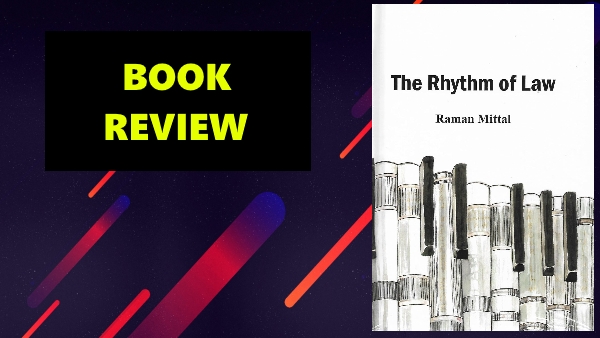Pradeep Kumar Biswas v. Indian Institute of Chemical Biology is one of the Supreme Court’s landmark decisions in constitutional law concerning the applicability of Article 12 of the Indian constitution to central bodies like the Council of Scientific and Industrial Research (CSIR).
FACTS:
- CSIR is a government agency under the control and functioning of the central government. Indian Institute of Chemical Biology is a unit under CSIR.
- In 1972, Sabhajit Tewary, a junior Stenographer under the CSIR, filed a writ petition under Article 32 of the Constitution, claiming parity of remuneration with the co-stenographers who were newly recruited, contending under Article 14 of the right to equality.
- In this Sabhajit Tewari V. Union of India case, a 5-Judge constitutional bench of the Supreme Court held that CSIR is not within the meaning of “State” under Article 12. It hence dismissed the petition that a writ cannot be maintained against CSIR.
- Immediately after this case follows the present case of Pradeep Biswas, an employee of the Indian Institute of Chemical Biology, he filed a writ before the Calcutta High Court challenging the termination of their services by CSIR.
- The Calcutta High Court refused to maintain the writ, citing the relevant precedent of Sabhajit Tewari V. UOI, claiming that CSIR is not a state under Article 12 to maintain a writ.
- Aggrieved by the decision, On 5th August 1986, a Special Leave Petition was filed before the Apex court, which was moved to a larger 7-member constitutional bench to review and reconsider the Sabhajit Tewary case.
ISSUES:
- Does CSIR fall within the ambit of Article 12 of the Indian constitution, within the meaning of “State”?
- Should this larger bench overrule the Sabhajit Tewary case, previously and very recently pronounced by the same court?
CONTENTIONS:
- Petitioners contended that the memorandum of association (MoA) of CSIR demonstrates that it was set up in the national interest to further the economic welfare of the society by fostering planned industrial development in the country, and hence within the meaning of “state” under Article 12.
- Respondents contended that the authority in the Sabhajit Tewary case must be followed in this case and hence declare CSIR as not within the purview of Article 12.
RATIO DECIDENDI:
- The issue was taken up by a Seven-Judge constitutional bench of the Supreme Court comprising Justices S.P. Bharucha CJI, Syed Shah, Mohammed Quadri, R.C. Lahoti, N. Santosh Hegde, Doraiswamy Raju, Ruma Pal & Arijit Pasayat.
- The writ was allowed by a 5:2 majority, with Justice R.C. Lahoti and Justice Doraiswamy Raju providing the dissenting opinion.
- With a detailed analysis of various administrative, financial and functional aspects of CSIR, the majority opinion held that CSIR is within the meaning of “State.”
- It was found that the government established CSIR for the national interest of economic welfare, top executives like Secretary, governing body, are appointed directly by the Prime Minister, who is none other than the ex officio President of CSIR, and also that the Central government grants meet 70% of the funds.
- However, the minority opinion did not agree to overrule what was held in the Sabhajit Tewary case. It did not allow for the inclusion of CSIR within the “State” ambit of Article 12.
DECISION:
- The court ultimately allowed the writ petition and held that the Sabhajit Tewary decision was erroneous and hence must be reconsidered.
- The court also held CSIR to be within the ambit of “other authorities” under Article 12 and hence a “state” against whom writ can be issued.
CONCLUSION:
- This case of Pradeep Kumar Biswas v. Indian Institute of Chemical Biology became one of the landmark judgments in the constitutional law and history of India, especially concerning the ambiguity in Article 12 of the constitution.
- Since the decision was given by a larger 7-Judge bench of the Supreme Court, the precedent in the erroneous findings of the Sabhajit Tewary case could be overruled, hence becoming a binding precedent for cases to come especially when PSUs began to get established by privatization policies across the country.
Found Pradeep Kumar Biswas v. Indian Institute of Chemical Biology case summary useful? We have a bunch of useful topics from constitutional law that will help you in your preparation here >>> CONSTITUTIONAL LAW
Check out our YouTube Channel for free legal videos >>> LAW PLANET YT





